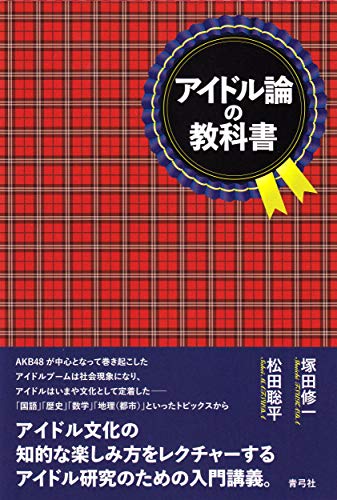7 0 0 0 OA 慢性裂肛に対するニフェジピン軟膏の有効性と安全性
- 著者
- 相川 佳子 松田 聡 川上 和彦 中井 勝彦 木村 浩三 野中 雅彦 尾田 典隆 新井 賢一郎 松永 篤志 今村 茂樹
- 出版者
- 日本大腸肛門病学会
- 雑誌
- 日本大腸肛門病学会雑誌 (ISSN:00471801)
- 巻号頁・発行日
- vol.72, no.2, pp.53-57, 2019 (Released:2019-01-30)
- 参考文献数
- 6
- 被引用文献数
- 1
保存的治療で改善をしない慢性裂肛患者への局所用カルシウムチャンネルブロッカー軟膏(以下ニフェジピン軟膏)の有効性と安全性に対する検証的臨床研究を行った.慢性裂肛患者40例に対してニフェジピン軟膏を使用し,疼痛(Face Scale;以下FS)と肛門内圧(以下MRP)を評価した.評価対象は32例であった.疼痛FSは,排便時・安静時共に治療前後で有意に低下した.手術に移行した症例を無効群,それ以外を有効群とすると,その有効率は87.5%であった.無効群のMRPは有効群に比べ有意に高かったが,治療前後でのMRPの有意な低下は認めなかった.副作用は1例に頭痛を認めた.ニフェジピン軟膏の機序として,肛門局所の平滑筋を弛緩させ,MRPを低下させ,創治癒を促進すると考えてきた.しかし,本研究で疼痛の有意な改善を認めたが,MRPは低下しなかったことから,MRP以外に疼痛を改善する要素がある可能性が示唆された.
4 0 0 0 OA 初期バロック音楽の実践的歌唱法の開発
2 0 0 0 アナニダミドの眼に及ぼす影響についての検討
[目的]アナンダミドは、カンナビノイド受容体の内因性リガンドとしてブタ脳より単離され、構造はアラキドン酸のエタノールアミドである。最近、アナンダミドの薬理作用が注目されているが、眼に及ぼす影響については、ほとんど解明されていない。今回われわれは、アナンダミドの眼、特に眼圧に及ぼす影響について検討した。[方法]体重2.0-2.5kgの雄白色家兎を使用し、日照時間などの環境因子による眼圧の変化を考慮し、照明時間や温度の管理された環境下で飼育した。対照実験としてバルミチン酸エタノールアミド(アナンダミドのアラキドン酸部分を飽和脂肪酸に置き換えたもの)を使用した。投与方法は、50mlのミネラルオイルに溶かした各種薬剤を片眼に点眼し、他眼には対照液を点眼した。その後ウサギを覚醒状態で点眼麻酔し、眼圧を経時的に測定した。角膜、虹彩、結膜の症状についても経時的に細隙灯下に観察した。[結果]150mgから1mgのアナンダミドの点眼により点眼1時間後から対照眼に比べ、眼圧が有意に下降し2時間後には最低値に達した。その効果は点眼7時間後まで持続した。バルミチン酸エタノールアミドには眼圧下降作用は認められなかった。細隙灯検査ではアナンダミドの点眼で充血をきたし、その程度は眼圧の変化と同様に2時間後で顕著であった。[結論]アナンダミドは用量依存性に眼圧下降作用があり、新しい緑内障治療薬としての可能性が示唆された。
- 著者
- 松田 聡
- 出版者
- 美学会
- 雑誌
- 美学 (ISSN:05200962)
- 巻号頁・発行日
- vol.54, no.2, pp.70-83, 2003-09-30 (Released:2017-05-22)
In February, 1786, the Emperor Joseph II gave a feast at Schonbrunn Palace. On this occasion, Der Schauspieldirektor, a comedy with music by Mozart, was given its first performance, together with Salieri's opera buffa Prima la musica e poi le parole. So it has long been widely accepted that the two composers' music competed with each other in the feast. But, in fact. Der Schauspieldirektor is a unique stage work, of which the first half is formed as a German Play and the latter as a Singspiel. This fact necessitates reconsideration of the "competition". From October, 1785, three genres of stage work, German Play, Singspiel and Italian Opera, were performed at Viennese court theatres, so the feast can be regarded as an epitome of this system of performance in operation. This system marks an epoch in the Viennese performance history of opera, because, till then, it had never occurred that both the Italian Opera and the Singspiel were performed at court theatres in the same period. The two works performed in the feast share the same subject, that is the rivalry and the harmony between the different genres, and through it, the Emperor demonstrated his new idea to treat both German and Italian theatrical genres equally.
- 著者
- 松田 聡
- 出版者
- 美学会
- 雑誌
- 美学 (ISSN:05200962)
- 巻号頁・発行日
- vol.54, no.2, pp.70-83, 2003
In February, 1786, the Emperor Joseph II gave a feast at Schonbrunn Palace. On this occasion, Der Schauspieldirektor, a comedy with music by Mozart, was given its first performance, together with Salieri's opera buffa Prima la musica e poi le parole. So it has long been widely accepted that the two composers' music competed with each other in the feast. But, in fact. Der Schauspieldirektor is a unique stage work, of which the first half is formed as a German Play and the latter as a Singspiel. This fact necessitates reconsideration of the "competition". From October, 1785, three genres of stage work, German Play, Singspiel and Italian Opera, were performed at Viennese court theatres, so the feast can be regarded as an epitome of this system of performance in operation. This system marks an epoch in the Viennese performance history of opera, because, till then, it had never occurred that both the Italian Opera and the Singspiel were performed at court theatres in the same period. The two works performed in the feast share the same subject, that is the rivalry and the harmony between the different genres, and through it, the Emperor demonstrated his new idea to treat both German and Italian theatrical genres equally.
1 0 0 0 OA 新橋駅改良工事におけるレンガアーチ高架橋改築の設計・施工
- 著者
- 松田 聡美 渡部 太一郎 有光 武 菅野 貴浩
- 出版者
- 公益社団法人 日本コンクリート工学会
- 雑誌
- コンクリート工学 (ISSN:03871061)
- 巻号頁・発行日
- vol.54, no.1, pp.53-59, 2016 (Released:2017-01-01)
- 参考文献数
- 4
1 0 0 0 アイドル論の教科書
- 著者
- 塚田修一 松田聡平著
- 出版者
- 青弓社
- 巻号頁・発行日
- 2016
- 著者
- 松田 聡一郎 松浦 大輔 菅原 雄介 武田 行生
- 出版者
- 一般社団法人 日本機械学会
- 雑誌
- 日本機械学会論文集 (ISSN:21879761)
- 巻号頁・発行日
- vol.83, no.854, pp.17-00282-17-00282, 2017 (Released:2017-10-25)
- 参考文献数
- 17
- 被引用文献数
- 2
In order to improve living space for stable walks by elderly people, this paper discussed assessment of living space with unique-shaped support objects. Four evaluation indices expressing capability of balance recovery corresponding to the support object were derived based on directionality of generative force by human's upper extremity and directionality of reaction force depending on surface shapes of the objects. Experiments were carried out to (1) obtain the parameters necessary to calculate the proposed indices and (2) carry out organoleptic evaluation of the support objects. Compared to the results obtained in these experiments (1) and (2), effects of the proposed indices were discussed, and an effective index among the four for evaluating the effect of the support objects was clarified. Assessment of a support object using the index was shown as an example.
- 著者
- 松田 聡
- 出版者
- 美学会
- 雑誌
- 美学 (ISSN:05200962)
- 巻号頁・発行日
- vol.45, no.2, pp.p12-22, 1994-09
- 著者
- 松田 聡
- 出版者
- 東京大学大学院人文社会系研究科・文学部美学芸術学研究室
- 雑誌
- 美学藝術学研究 (ISSN:13426095)
- 巻号頁・発行日
- vol.17/18, pp.59-88, 2000-03-24
- 著者
- 松田 聡
- 出版者
- 大分大学教育福祉科学部
- 雑誌
- 大分大学教育福祉科学部研究紀要 (ISSN:13450875)
- 巻号頁・発行日
- vol.29, no.1, pp.1-14, 2007-04
1 0 0 0 OA 女性研究者支援産総研におけるニーズ : 研究満足度のアンケート調査に基づく分析
- 著者
- 田中 敦子 松田 聡 大谷 加津代 戸田 賢二 澤田 美智子
- 出版者
- 研究・イノベーション学会
- 雑誌
- 研究技術計画 (ISSN:09147020)
- 巻号頁・発行日
- vol.25, no.1, pp.107-120, 2010-12-28
文部科学省科学技術振興調整費(女性研究者支援モデル育成)事業の一部として, 独立行政法人産業技術総合研究所では「女性研究者グローバルエンカレッジング」課題を2007年7月より3年度の計画で実施中である。意欲触発と実践の両面からの女性研究者支援を意図した本課題の, 初年度終了後の浸透度の確認と, より効果的な支援のための支援対象の分析とニーズの把握を目的として, 4300名の男女研究職員を対象に2008年5月に筆者らはアンケート調査を実施し, 有効回収率14%に相当する回答を得た。アンケート結果の分析から, 支援事業の浸透度および支援対象の研究職員に関する次の傾向が明らかになった。1)任期のない職員と, 任期のある職員とでは, 研究業務上の不満の重心が2極化している。2)40歳以下の女性研究職員の研究マネジメント(管理職)志向が, その上の世代や男性に比較して高い。3)常勤研究職員の有配偶者率は, 31〜40歳の層では男性は70%台, 女性は50%台と差がある。アンケート結果の分析から, 次の具体的な支援ニーズが明らかになった。1)研修に対する支援2)キャリアパス形成に対する支援3)男女研究職員のワークライフバランスに関連する支援4)女性の少ない職場であることに関連する女性研究者支援
1 0 0 0 OA 18世紀後半のイタリア諸都市とウィーンのオペラ公演におけるレパートリーの相関関係
1 0 0 0 OA 授業を支援する「雪」に関するWebコンテンツの新展開と教員研修モデルの開発
- 著者
- 高橋 庸哉 新保 元康 土田 幹憲 佐藤 裕三 小笠原 啓之 割石 隆浩 神林 裕子 佐野 浩志 坂田 一則 細川 健裕 土門 啓二 松田 聡 本間 寛太 伊藤 健太郎 杉原 正樹 中島 繁登 吉野 貴宏
- 出版者
- 北海道教育大学
- 雑誌
- 基盤研究(C)
- 巻号頁・発行日
- 2007
開発してきた雪に関するWebコンテンツの授業での普及を図るために、コンテンツの拡充と共に児童向けワークシート及び教員向け学習プラン集、教員研修プログラムの開発を行った。ワークシートを授業で利用した教員は5段階で平均4.8と高く評価した。教員研修プログラム後に参加小学校教員の45%はこのコンテンツを利用しており、プログラムが有効に機能した。また、コンテンツが授業に役立ったかについて5段階で4.5と答えており、Webコンテンツの内容妥当性も示された。


